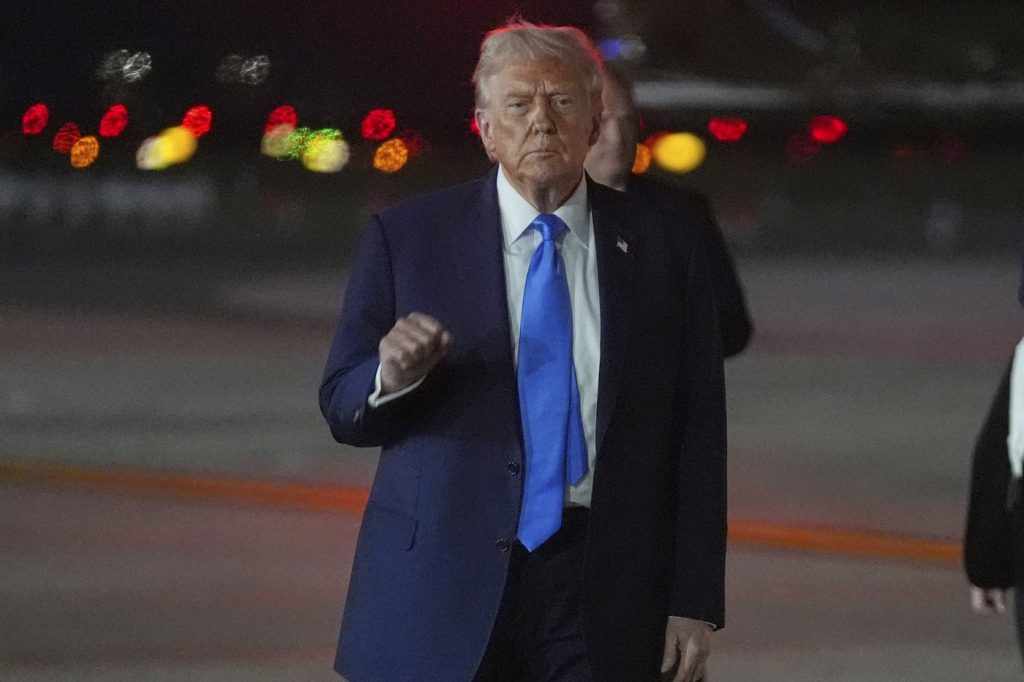NEW YORK — In a highly anticipated address at the United Nations General Assembly on Tuesday morning, U.S. President Donald Trump is expected to criticize American allies for their recent actions recognizing Palestinian statehood. This includes Canada, which, along with the United Kingdom, Australia, and Portugal, declared its recognition of an independent Palestinian state just days before the assembly's 80th session.
This initiative was echoed by French President Emmanuel Macron, who announced during a high-profile meeting at the assembly that France would also officially recognize Palestinian statehood. Additional European nations, including Andorra, Belgium, Luxembourg, Malta, and Monaco, joined in this collective recognition effort, further substantiating the growing international support for Palestine.
Prime Minister Mark Carney of Canada utilized a Monday meeting with world leaders to criticize the Israeli government's strategies, asserting that it is "working methodically to prevent the prospect of a Palestinian state from ever being established." White House Press Secretary Karoline Leavitt responded to these developments by stating that President Trump disagrees with the recognition efforts, accusing the allied nations of effectively rewarding Hamas for its actions, specifically referencing the attacks that occurred on October 7, 2023, which marked the beginning of the current conflict in Gaza.
Leavitt characterized the recognition of Palestinian statehood as "more talk and not enough action" on the part of U.S. allies. Trump’s address at the UN will reportedly focus on this theme among other pressing international issues. Notably, prior to the general assembly, U.S. Secretary of State Marco Rubio took the dramatic step of revoking the visas of Palestinian President Mahmoud Abbas, who was consequently required to deliver his speech via video link.
This year’s general assembly, themed "Better together: 80 years and more for peace, development and human rights," comes at a time when Trump has been critical of the UN and its multilateral agencies. Notably, he initiated a review of the U.S.’s involvement with the United Nations, withdrew support from the Human Rights Council, and halted funding to various UN programs. Just a week ago, the U.S. vetoed a UN Security Council resolution that called for a permanent ceasefire in Gaza and the release of hostages taken by Hamas, citing insufficient condemnation of Hamas within the resolution.
Beyond the Middle East conflict, both Canada and European nations will be attentive to Trump's remarks regarding Russia’s military actions in Ukraine and potential breaches of NATO airspace. The high-stakes debate at the assembly is occurring shortly after incidents involving Russian fighter jets entering Estonian airspace and drone incursions into Polish territory, heightening concerns about regional security.
Last year, during his presidential campaign, Trump claimed he could resolve the Ukraine conflict in a single day, yet ongoing challenges have persisted, leading to discussions with Russian President Vladimir Putin in Alaska that have not produced substantial results.
Prime Minister Carney is expected to attend Trump’s speech and co-chair a significant event with Ukrainian President Volodymyr Zelenskyy, focusing on the plight of Ukrainian children abducted by Russia. Following Trump's address, Carney plans to engage in meetings with other world leaders and corporate executives, further emphasizing Canada's commitment to addressing international humanitarian concerns.











